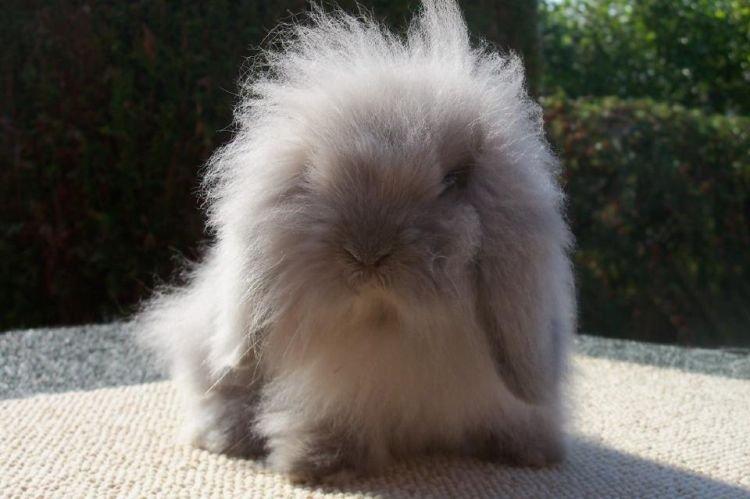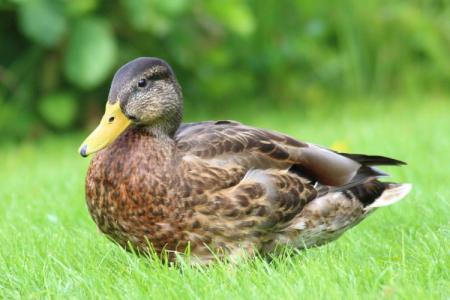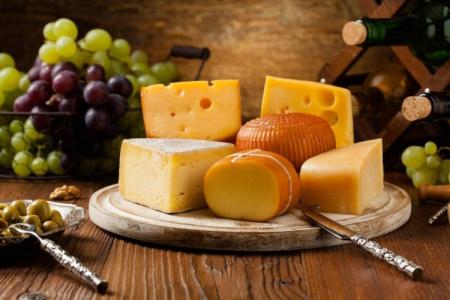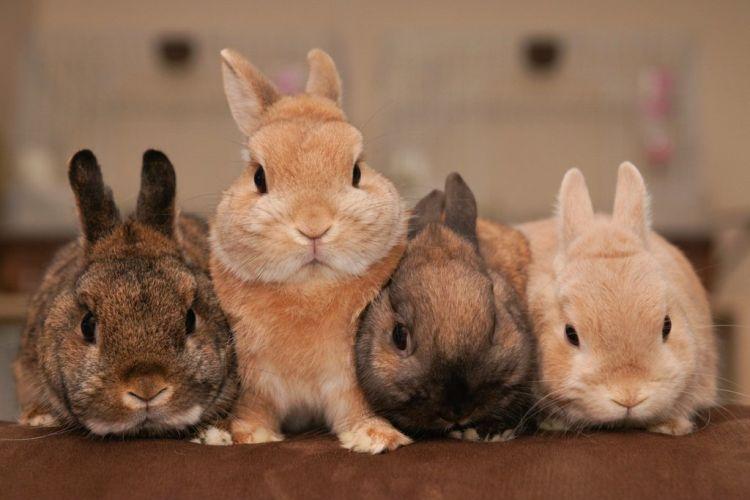
Around the world, the farm contains more than 700 varieties of rabbits, varying in size and appearance. Quite dwarf ones hardly reach a kilogram, and large ones weigh more than 6 kg. To make it easier for you to navigate, we have prepared a selection of the 25 most popular rabbit breeds with photos and descriptions!
Rabbit meat breeds
These are large breeds that can weigh up to 10 kg and gain weight quickly. Like chickens, these rabbits are often referred to as broilers. Their meat is dietary, with a minimum fat layer and is well absorbed by the body.
Flanders
The large Belgian giant is one of the oldest meat breeds. Now such rabbits weigh up to 7 kg, although earlier individuals of 10-12 kg were more common. At first glance, the animal seems massive and clumsy, but in fact they are very nimble.
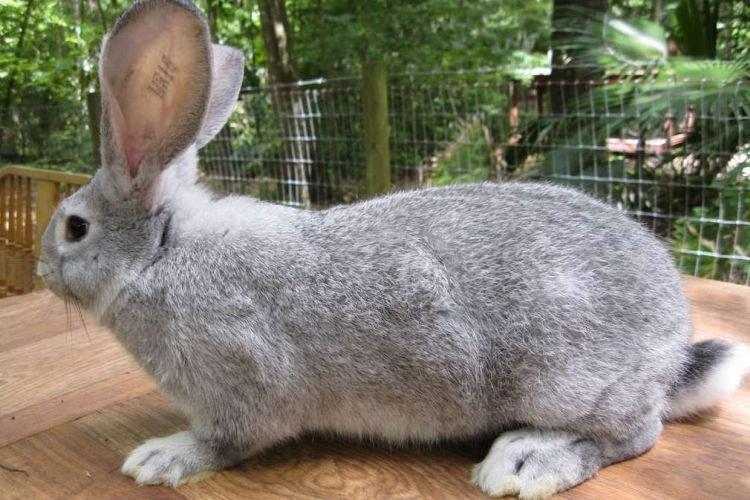
Burgundy
Large red rabbits are famous for their good health and abundant offspring - about 50 cubs per year. The breed practically does not get sick, but it is prone to obesity, so you need to control nutrition.
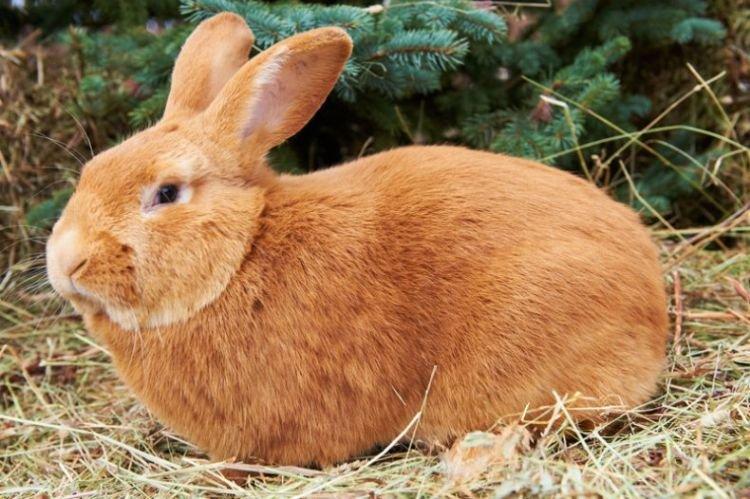
New Zealand
A relatively young breed of rabbits is presented in two varieties: red and white. The animals are very beautiful and large, and the females are larger than the males. The New Zealand breed is considered one of the most meaty on the farm.
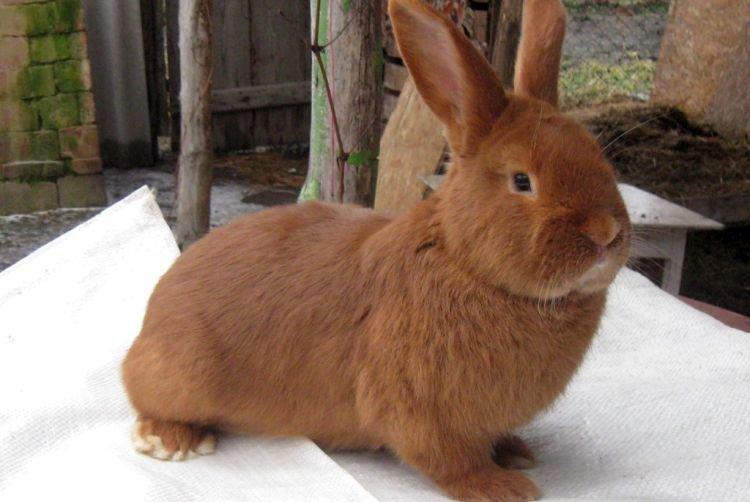
Gray giant
Cute companionable rabbits willingly live in common enclosures and wither away alone. They have an average size, up to 6 kg, but high fertility. Rabbits do not show aggression towards babies and feed them themselves.
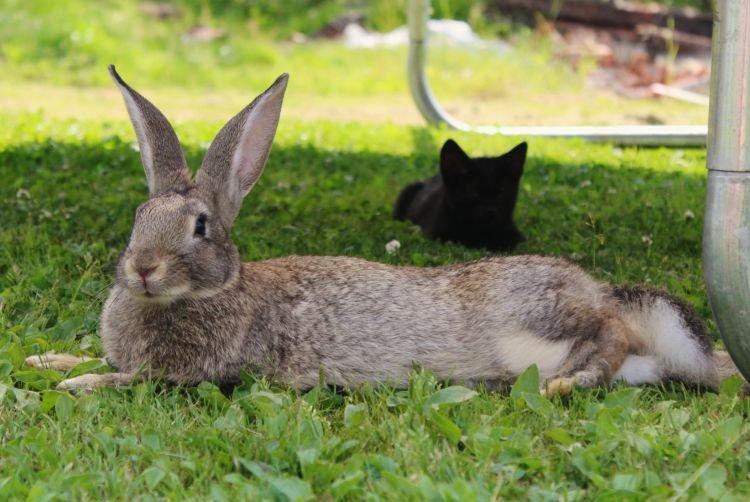
White giant
A bizarre mix of genes allowed for the creation of giant albinos without the slightest admixture of other shades. With proper nutrition, rabbits grow plump, up to 5-6 kg. But in order to preserve the specific features, the intervention of breeders is periodically necessary.
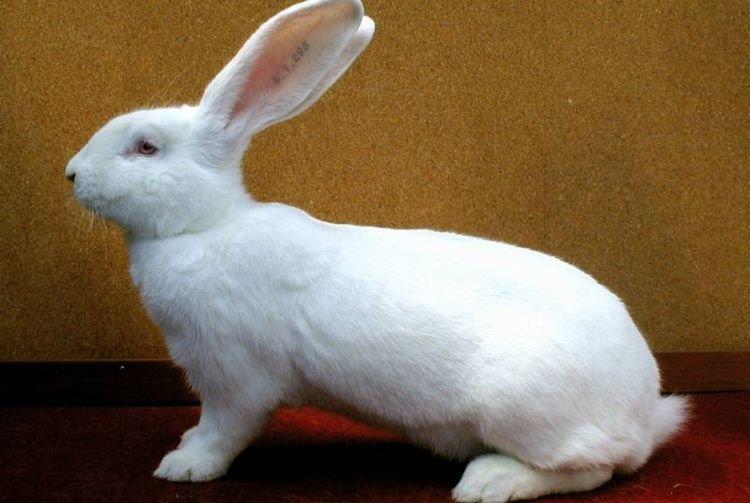
Ram
Rabbits are notable not only for their unusual name, but also for the saggy shape of their ears, which is why they require special care. But large individuals of the breed even grow up to 10-11 kg with proper nutrition.
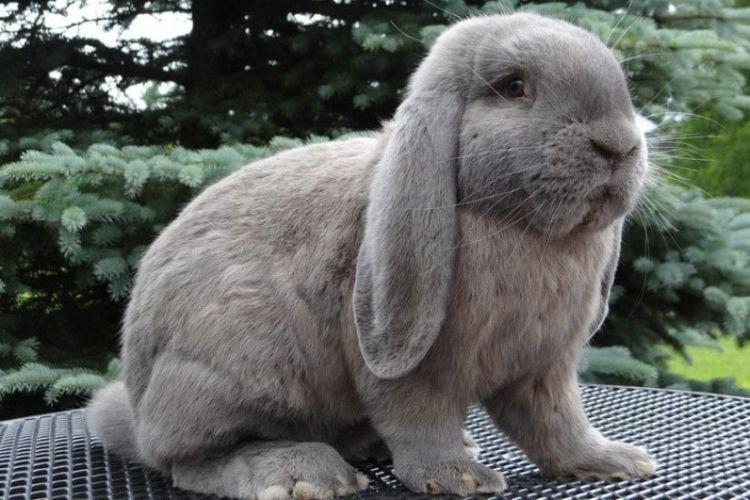
Hichol
The snow-white French hybrid with funny dark ears is gaining up to 5 kg by the fourth month. The rabbits are meaty and grow rapidly, but cannot reproduce on their own. So manual fertilization will be required to preserve species characteristics.
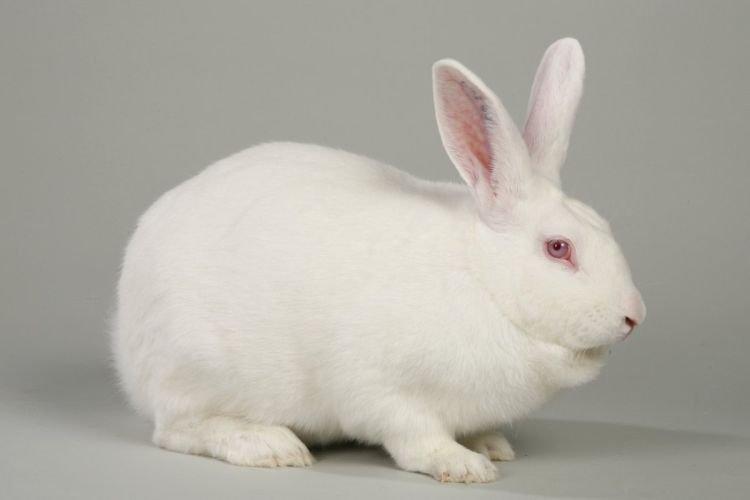
European silver
The breed is valued for the special low-fiber structure of the meat, which is why it is well absorbed by the body. Rabbits are unpretentious, feel great in the middle lane and eat relatively little.
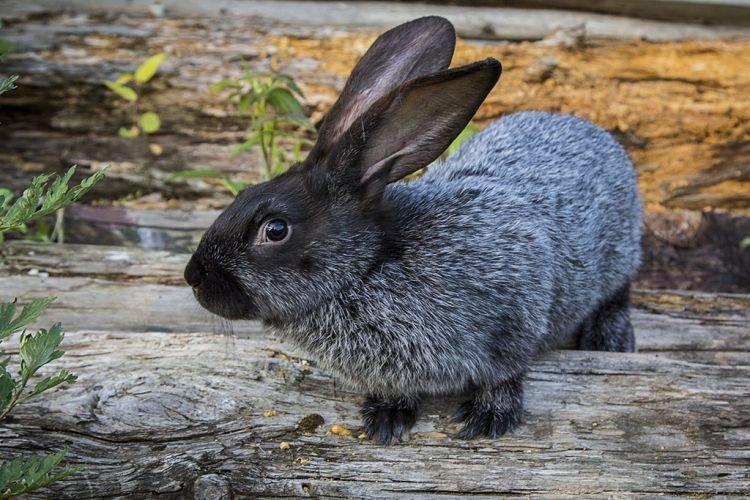
Fur breeds of rabbits
Fur breeds are prized for their unusual colored decorative skins. Many of these varieties are also bred for meat, which can make the process even more profitable.
Rex
The old breed used to be considered elite and almost unattainable, but even now its fur is highly valued. The coat of Rex is very dense, resembles plush or velvet, and shades vary within the brown range. For their beauty, rex are often kept as decorative pets.
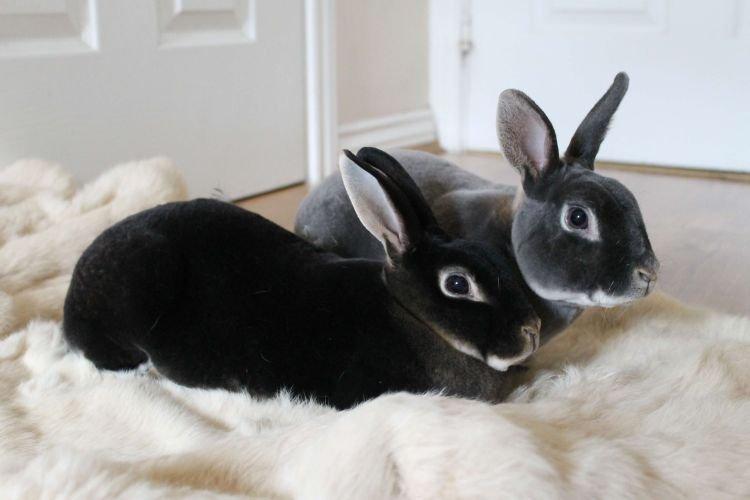
Veil silver
The black-chinchilla color went to these rabbits thanks to the bizarre mixing of four different breeds at once. After the first moult, an unusual silvery undertone appears on the fur, and after the second, a black veil appears.
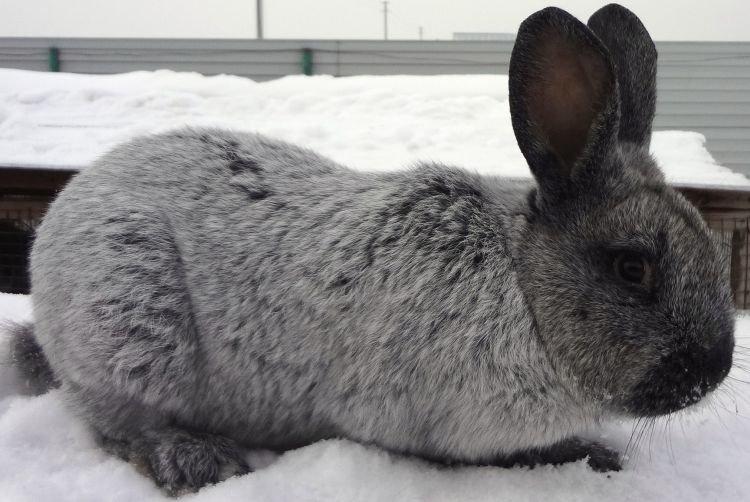
Soviet Marder
The achievement of domestic breeders is appreciated for the unusual brown-chinchilla color. The velvety skin is fluffy and shimmers interestingly in the light. Marders are relatively small - about 4 kg, and they give up to 7 babies in one round.
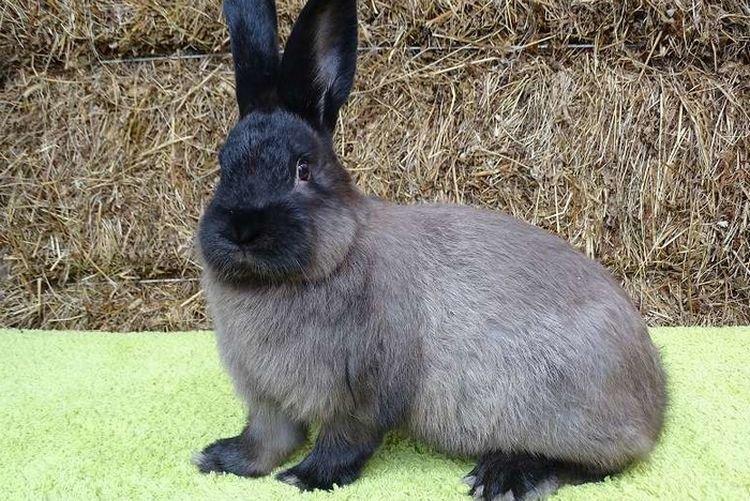
Vienna blue
The striking bluish tint of this rabbit breed drives breeders all over the world crazy. For a long time, this species was endangered, because it was actively used to imitate the skins of other animals.
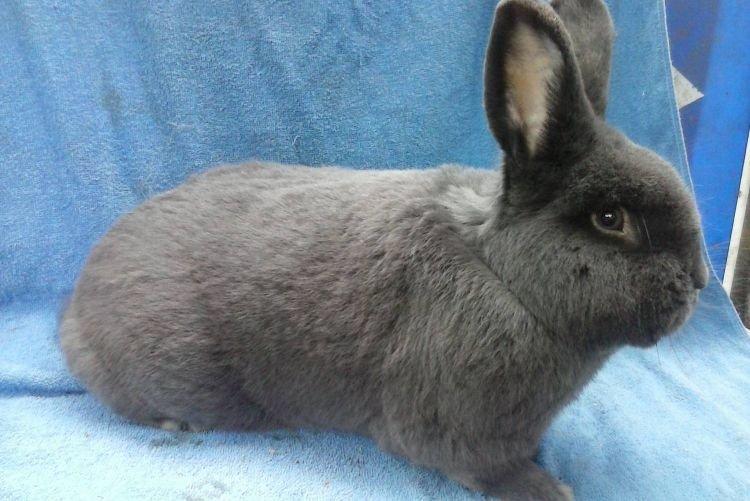
Ermine
Now the breed seems to be very decorative, but in fact it has ordinary wild rabbits in its blood. The color of the fur with dark spots on the nose, ears, paws and tail really resembles an ermine. The breed almost does not get sick, easily adapts to different conditions and is almost omnivorous.
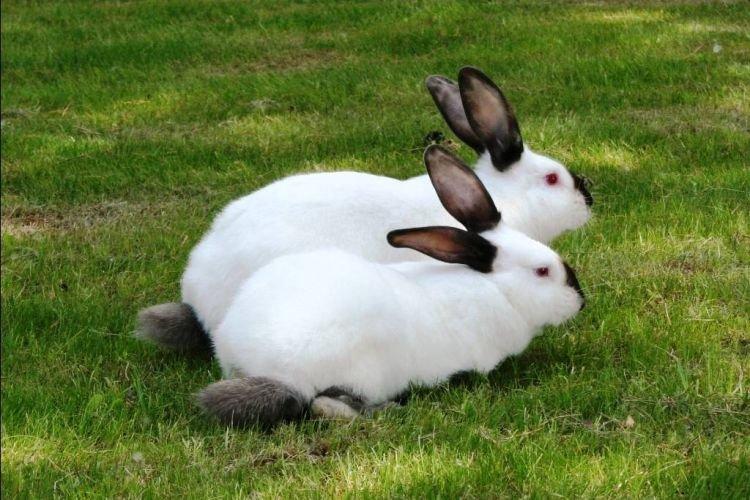
Downy Rabbit Breeds
Downy breeds are specially bred so that the skin mostly consists of down hair. Compared to other animals, rabbit fluff is much softer, more uniform and better in quality.
Angora
Downy Angora rabbits came to Europe from Turkey and for a long time were considered exotic, worth their weight in gold. Although the animals are medium-sized, the volume of fluff reaches 92%, so even with a monthly haircut, they resemble fluffy balls. A large individual can get up to 1.5 kg of fluff per year.
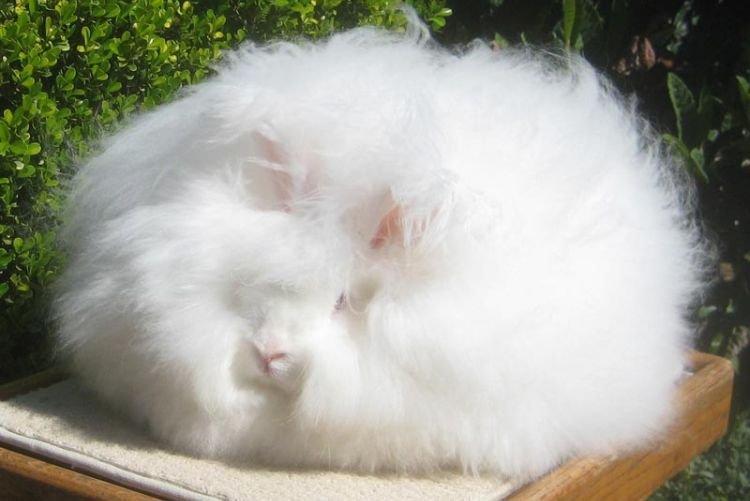
French Angora
These are already miracles of European breeders who managed to make the breed larger and denser. It is easier to look after the animals, because from below they do not have long fluff, which must be constantly cut for the rabbit to move normally. The wool practically does not fall off, so it is easier to comb out French Angoras.
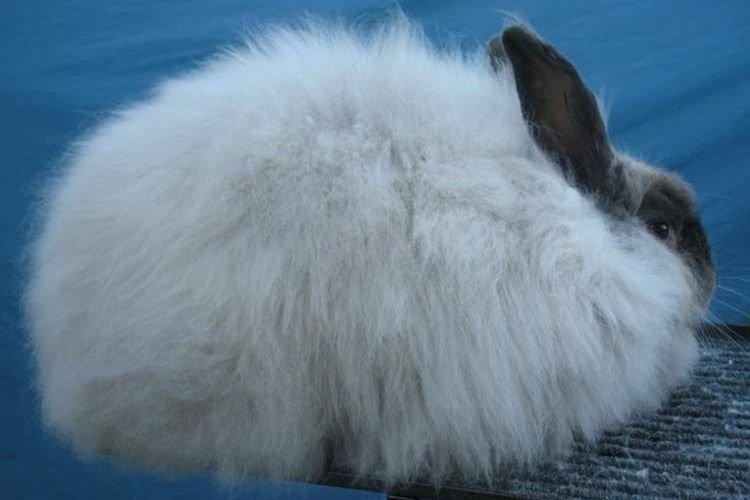
White downy
The domestic breed is ideally adapted to mid-latitudes and cool regions, because it does not tolerate heat well. Downy hairs are very light and elastic, accounting for up to 95% of all fur. A rabbit weighing up to 5 kg gives about 750 g of fluff per year.
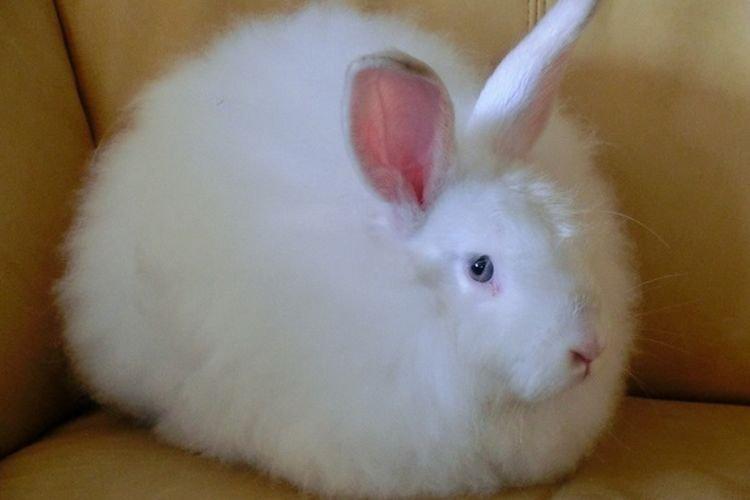
Satin
Satin rabbits are not as fluffy compared to other downy varieties, but the structure of their down is fundamentally different. The shining silky coat resembles a satin fabric - it is very thin, and due to this, it is much softer and softer.
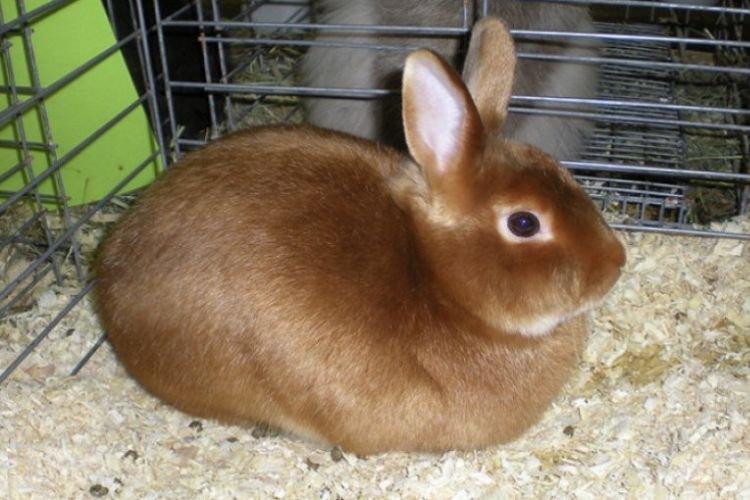
Arctic fox
Another domestic, but this time a very old breed, easily adapts to different climatic conditions. Rabbits are small, so they give up to 250 g of fluff, but they are completely unpretentious in food, they hardly get sick and are very hardy.
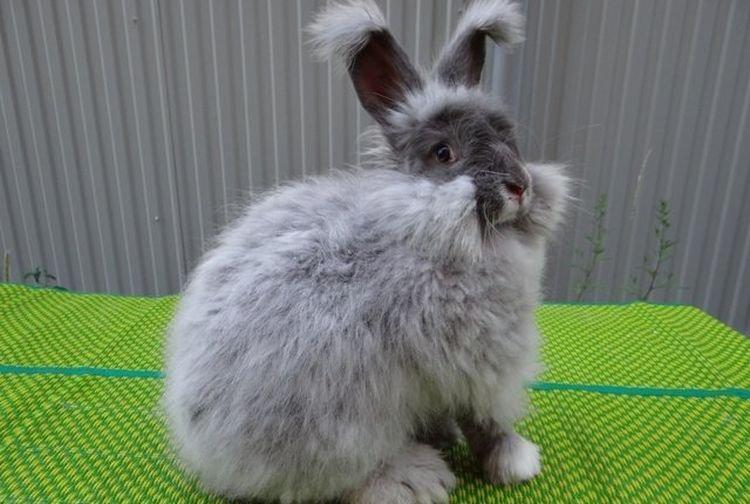
Decorative breeds of rabbits
Decorative rabbits are bred as pets. Usually they are small, up to a maximum of 2 kg, rather clean and not too capricious to care for.
Himalayan
For its characteristic color, the breed was also nicknamed "black nose", although the main color is white. Like albinos, Himalayan rabbits have red eyes. They are quite large, so they will need more space.
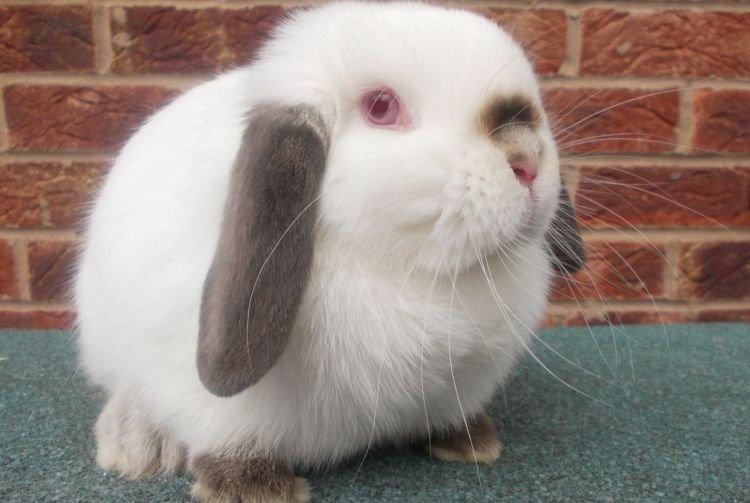
Polish
A tiny Polish rabbit rarely grows more than a kilogram. This is a long selection work of the best researchers in Europe, from which hermelin and other popular varieties were later derived. Now the Polish and British subspecies are separated separately: the Polish are more rounded, while the British are slimmer and resemble hares.
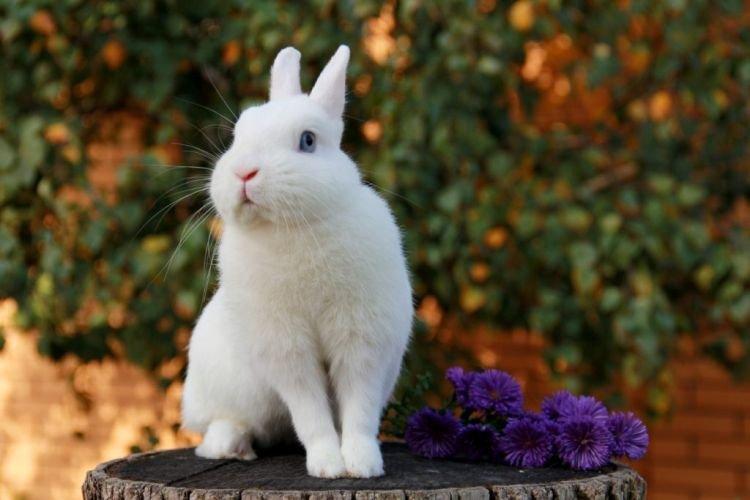
Butterfly
These small decorative rabbits came to us from England and quickly gained popularity due to their unusual color. Almost all the skin is white, but black spots remain on the ears, muzzle, neck and nose, which resemble the wings of butterflies. Large hybrids of this breed are also grown as fur rabbits.
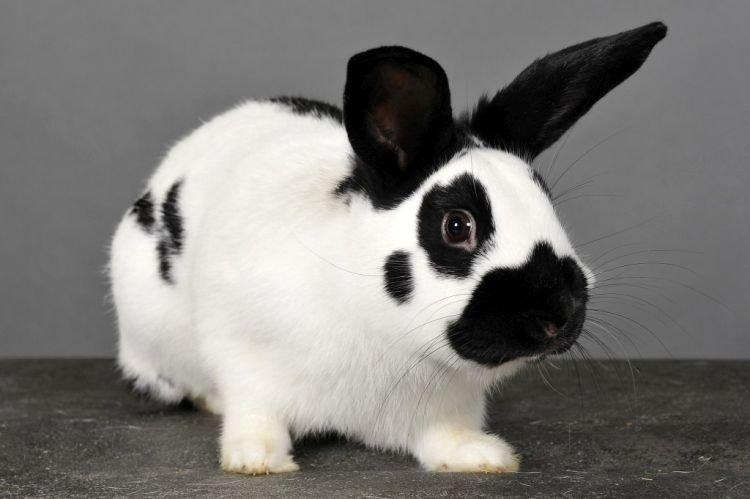
Teddy
The adorable young breed truly resembles plush toys. Small long-haired rabbits look like a fluffy lump. So far, they are not recognized as a separate species in all countries, but the process is already underway.
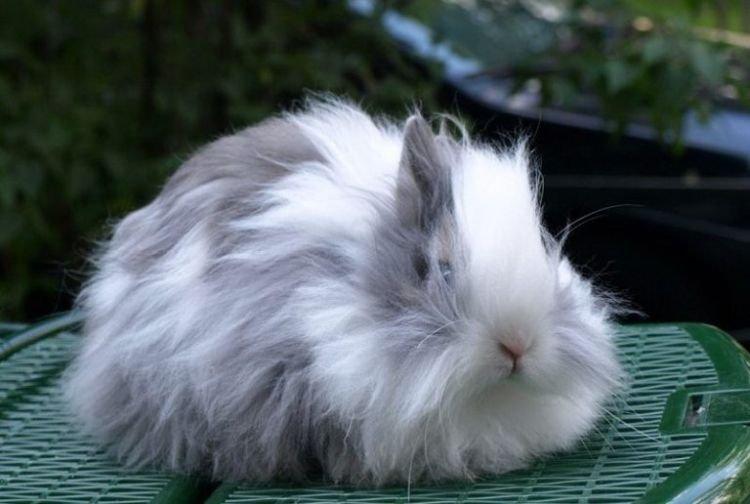
Miniature satin
Satins are appreciated for the silky sheen of the skin, due to which dozens of fur, downy and decorative hybrids have already been bred. The houses most often contain a miniature breed up to 2 kg, in which more than 10 colors have already been recognized.
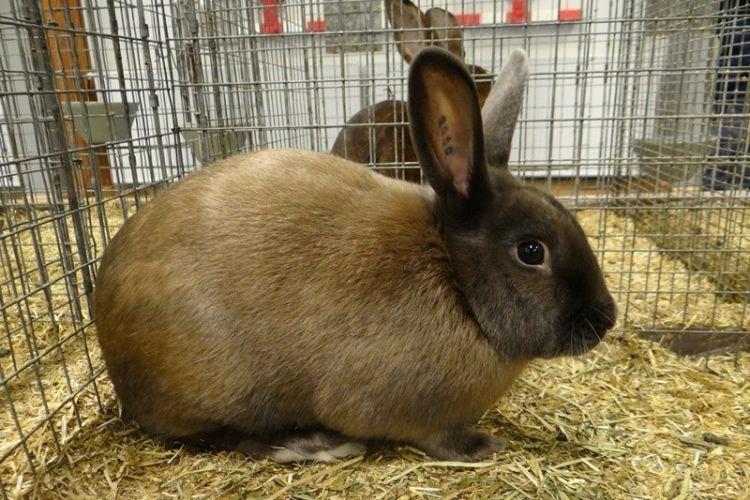
Jersey Woolley
This is a dwarf downy breed based on the French Angora rabbits. Funny animals are too small for industrial breeding, but instantly became the stars of exhibitions. There are many different colors, and it is easier to care for the coat, because the long down does not cover the head and neck.
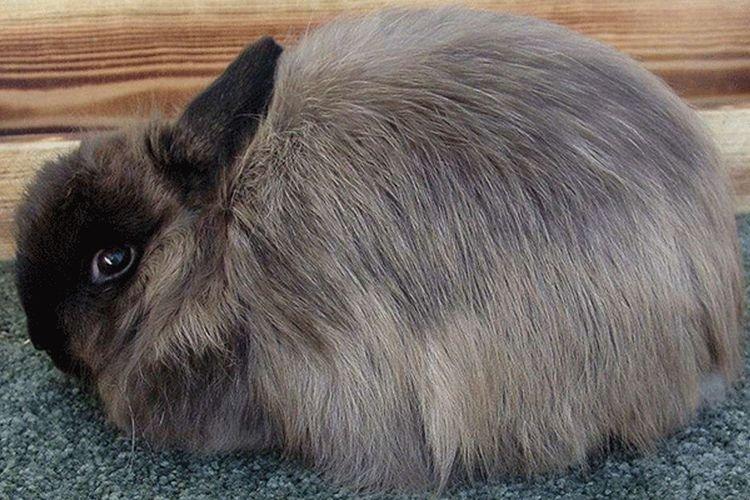
Lop-eared lion
The species of miniature rabbits got its name from its fluffy coat, which really resembles a mane.The breed is only 20 years old, but has already spread widely throughout the world. An important feature is lop-earedness, which is why the ears require careful care.
